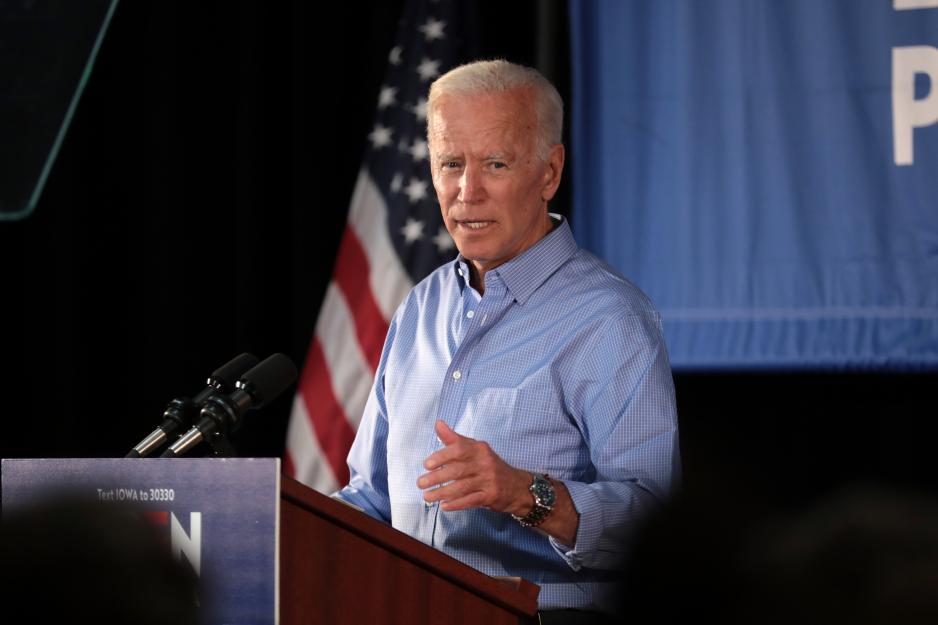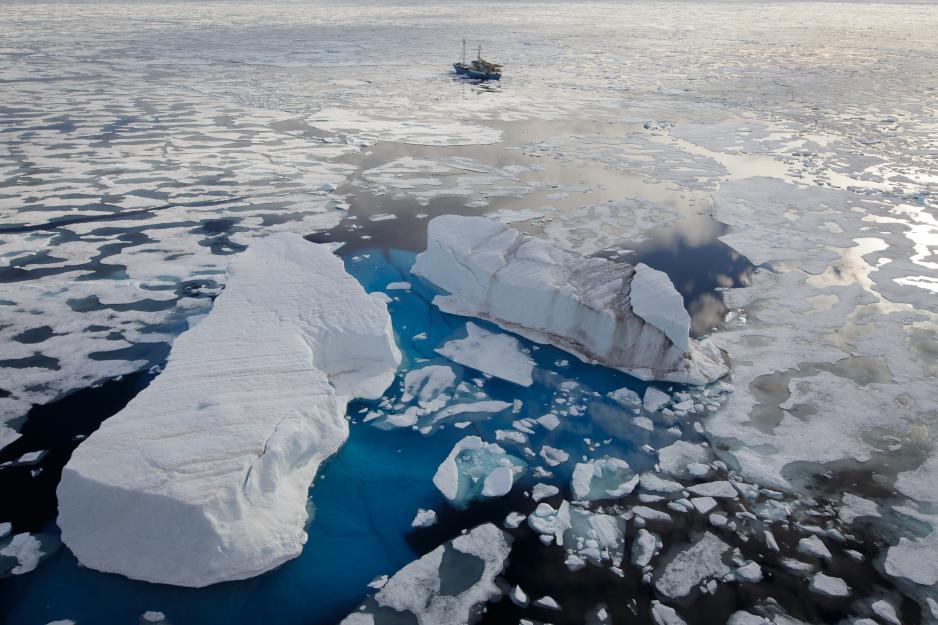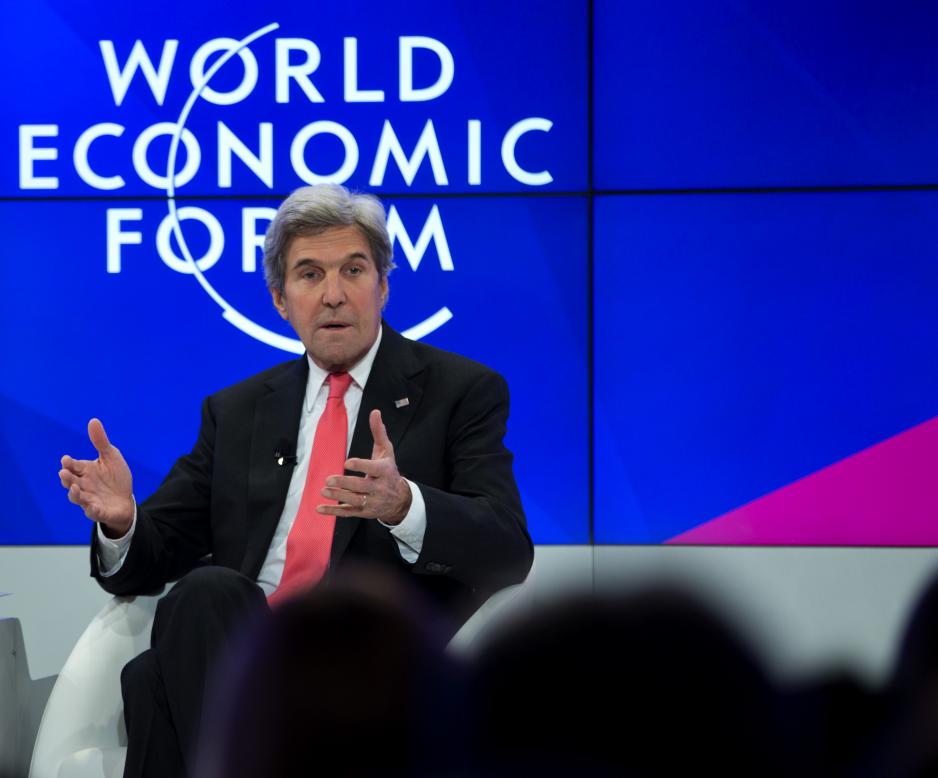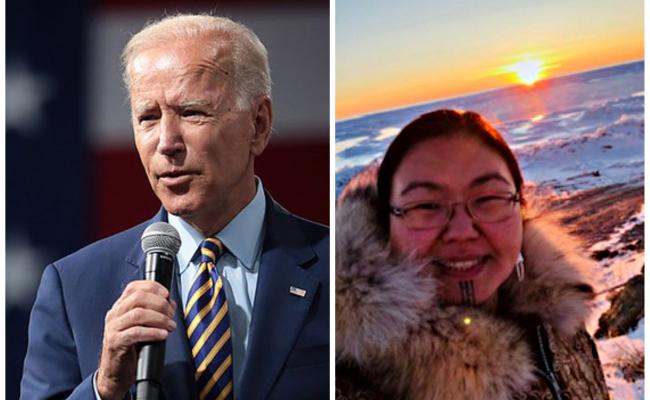The USA Joining the Paris Agreement Again: One Step in the Right Direction for the Arctic

President Joe Biden and the new administration emphasize an extensive approach to address climate change. Biden places the climate crisis within the context of foreign policy and national security. (Photo: Gage Skidmore, the White House).
Carrying out his ambitious climate policy on a national level may not necessarily be easy for Joe Biden, however, researchers argue that it is a particularly good thing that both the USA and China, who account for almost 40 percent of global emissions, now are back at the table again in international climate politics.
On his first day at work as the new US President, Joe Biden signed the presidential order bringing the USA back into the Paris Agreement.
The climate agreement is the largest international agreement ever about climate politics. Its intent is to strengthen the response to climate changes and slow down global warming. Its signatories commit to setting ambitious climate goals every five years in order to reduce their emissions.
The goal is to limit temperature increase on earth to less than 2°C, preferably to 1.5°C. At the end of 2020, the global average temperature was 1.13°C higher than in pre-industrial times.
However, even if the goal of limiting global warming to 2°C were to be achieved, temperatures will rise with 6-8°C in the Arctic region. The Paris Agreement thus matters a great deal to the Arctic, explains Professor and Researcher Grete Kaare Hovelsrud at Nord University and Nordland Research Institute.
“If we are able to bring down emissions, that will matter for the Arctic, which is one of the places in which climate changes hit first and hardest. The fact that the US now is back at the table alongside the major emission countries and economies such as Brazil, Russia, India, and China is a giant leap in the right direction. The largest economies with the largest emissions matter a great deal when it comes to whether or not we will be able to reach the goals of the Paris Agreement, Hovelsrud stresses.
The signal that the USA actually wants to do something is important.

If the Paris Agreement is kept, it is crucial for limiting climate changes and thus also for the Arctic, says researcher Grete K. Hovelsrud. (Photo: Nick Cobbing)
Sincere ambitions
Climate is one of the prioritized policy areas of the new American administration. President Biden has ambitious plans about net-zero carbon emissions by 2050 and a target about carbon-free power production by 2035. Over the past weeks, he has signed several presidential orders that are to contribute to reaching these goals.
“The USA is the world’s largest economy and accounts for a significant part of global emissions. If the USA moves on with its ambitious climate goals, that will matter a great deal for limiting climate changes. This is a massive U-turn from Trump’s policy, which opened up for more coal power and oil exploitation”, Hovelsrud says.
Professor Tora Skodvin at the Institute of Political Science at the University of Oslo argues that the challenge is that the opportunity for securing a long-term, efficient climate policy on a national level in the USA is limited.
“I believe Biden to be sincere and serious in his ambitions for American and international climate politics. However, he cannot decide all this himself and he cannot do it alone. Running climate politics through executive orders, as Obama also did, is a controversial method. States that are negatively affected by this can try their case in the judicial system. It may thus take a long time before it reaches a point in which it is implemented in several states. And given that this is a presidential order, the next president is also able to easily revoke decisions.”
More international pressure
“On the other hand, I do believe Biden can do quite a few things on the international level. The USA and China together account for almost 40 percent of global emissions. If they can do something together, that will matter a great deal for what other countries want to do and how ambitious they are”, Skodvin says.
“The signal that the USA actually wants to do something is important.”
Researcher Steinar Andresen at the Fridtjof Nansen Institute agrees that the USA’s rejoining the Paris Agreement is good news for those wanting something to happen about the climate.
“The USA is, in many ways, the most important actor in international climate politics due to its great influence. With the Democratic party at the helm, the country has a track record of being a driving force in those processes. Now, there is a greater opportunity for reaching more ambitious goals, even though one should not exaggerate the significance of the more proactive role of the USA in international climate politics”, he says to High North News.
The FNI researcher says that on the international arena one can nevertheless expect that the US will present new, ambitious plans and contribute with more pressure in negotiations. This applies among others when it comes to China, a key actor with its 27-28 percent of global emissions, almost twice as much as those of the USA.
Can the USA’s rejoining of the Paris Agreement put more pressure on China to cut its emissions further?
“There is a greater opportunity now than there was before”, Andresen stresses and adds:
“During the Trump administration, there was less pressure on China to do something as long as the US did not want to do much itself. If the premise is that the US will do more during the Biden administration, this may also contribute to increasing pressure on China as the biggest actor through the USA’s being more proactive both through bilateral as well as multilateral negotiations.”

“China’s goal of carbon neutrality is undermined by the country’s financing coal power plants all over the world”, said US Special Envoy for the Climate, John Kerry, during the World Economic Forum’s digital summit last week. His statement was one out of many examples that Biden and his team are serious about climate politics at home and abroad, online newspaper Energi og klima writes. (Photo: World Economic Forum, 2017, U.S. Embassy Bern/ Eric Bridiers).
What do you think about the situation for the Arctic in all of this?
“One cannot expect there to be a dramatic change of international climate politics that implies massive changes for the Arctic, especially when considering what climate changes mean to development in the region. However, one is most likely heading in a more positive direction that there otherwise would have been”, Andresen says in closing.
Also read
This article was originally published in Norwegian and has been translated by HNN's Elisabeth Bergquist.






